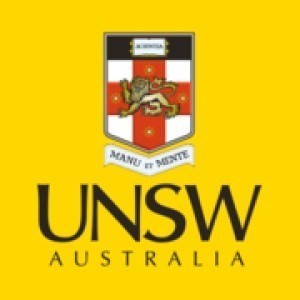Photos of university / #oxford_uni
The Doctor of Philosophy (DPhil) is the most prestigious of the Law Faculty's research degrees. It entails writing a thesis of between 75,000 and 100,000 words over a period of three, or at most four, years. The thesis must make a significant and substantial contribution to its field.
DPhil students will pursue a range of career paths after completion of the doctorate. Many will take up academic posts, or pursue postdoctoral research of one sort or another. Some will enter legal practice as solicitors, barristers, advocates, and judges; others will become legal advisors advising government departments, non-governmental organisations and private companies.
The University of Oxford has an excellent careers service with which the department has close ties. The Careers Service organises a number of events of specific interest to students wishing to pursue a career in law, and offers one-to-one advice from members of staff with knowledge and experience specific to the legal sector.
The Law Faculty has an extensive network of relationships within the legal profession and each year offers a number of talks and events run by law firms and barristers’ chambers.
Students are never admitted to the DPhil degree directly. They are transferred to DPhil status following a 'qualifying test' taken at the end of their first year as a research student. Your initial application to read for a DPhil is strictly speaking an application to become a Probationer Research Student (PRS). In the Faculty of Law you may alternatively qualify through a one-year research degree (either MSt or MPhil). The MSt or MPhil year then doubles as your probationer year. To take the MPhil route you must begin with one of our taught postgraduate degrees (the BCL or the MJur or the MSc in Law and Finance).
Here is a summary of the possible routes of ascent to a DPhil degree in the Faculty:
- Route 1: PRS (one year) » DPhil (approx. two further years)
- Route 2: MSt in Legal Research (one year) » DPhil (approx. two further years)
- Route 3: BCL/MJur/MSc Law and Finance (one year) » MPhil (one year) » DPhil (approx. two further years).
Whichever route you take, your first year as a research student (PRS, MSt or MPhil) will be similar. You will take a course in legal research method and you will conduct and write up a substantial piece of research. Some or all of that writing will be used in your qualifying test for DPhil status at the end of the year. In the case of the MSt or MPhil this will be your MSt or MPhil thesis; in the case of PRS it will be a draft chapter or other similar sample of work. The qualifying test will also require you to draft a proposal for the rest of your research.
Applicants are normally expected to be predicted or have achieved a first-class undergraduate degree with honours (or equivalent international qualifications), as a minimum, in law.
In the absence of an undergraduate degree in law, candidates may be admitted with a postgraduate diploma or master's qualification in law at Distinction level.
For applicants with a degree from the USA, the minimum GPA sought is 3.7 out of 4.0.
Most students admitted to the programme have a previous master's qualification but this is not a formal requirement.
If you hold non-UK qualifications and wish to check how your qualifications match these requirements, you can contact the National Recognition Information Centre for the United Kingdom (UK NARIC).
No Graduate Record Examination (GRE) or GMAT scores are sought.
- Official transcript(s)
- CV/résumé
- Research proposal: Around 600 words, up to two pages
- Written work:One essay of 2,000 words
- References/letters of recommendation:Three overall, generally academic
ENGLISH LANGUAGE REQUIREMENTS
Higher level
|
est |
Standard level scores |
Higher level scores |
||
|
IELTS Academic |
7.0 | Minimum 6.5 per component | 7.5 | Minimum 7.0 per component |
|
TOEFL iBT |
100 |
Minimum component scores:
|
110 |
Minimum component scores:
|
| Cambridge Certificate of Proficiency in English (CPE) | 185 |
Minimum 176 per component |
191 |
Minimum 185 per component |
| Cambridge Certificate of Advanced English (CAE) | 185 |
Minimum 176 per component |
191 |
Minimum 185 per component |
- Global Education
- Hill Foundation Scholarships
- A number of Research Council awards are available each year from the Economic and Social Research Council (ESRC), the Natural Environment Research Council (NERC), and Arts and Humanities Research Council (AHRC).










